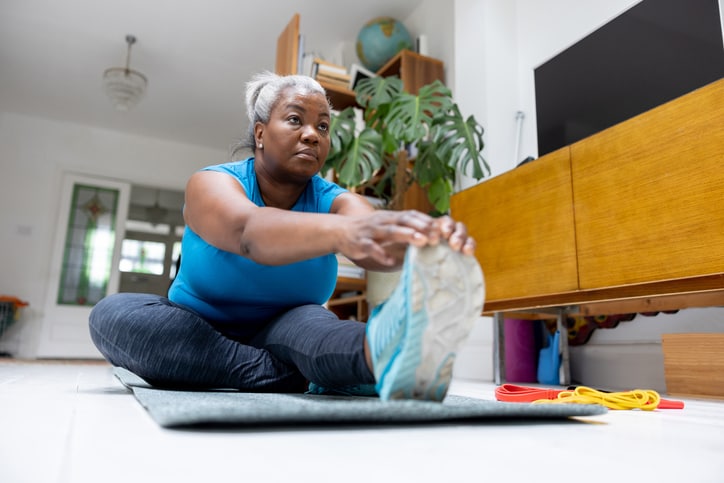Caring for an aging loved one is undoubtedly a stressful experience. Add in the stress that caregiving can put on marriages and the potential strain on relationships with siblings and children, and you’re set up for a pressure cooker of a situation.
It’s something Edward Creagan has seen countless times in his career as a palliative care consultant and professor of medical oncology at the Mayo Clinic College of Medicine in Rochester, Minnesota.
“Caregivers ask, ‘Where do I start? Where do I go? How do I handle it?’” Creagan says.
At first family members may not be sure what to do and everyone seems in it together, he notes. But as they move through the process, people often begin to form opinions on how their loved one should be cared for, and disagreements may start to crop up.
“These schisms can tear apart a family forever,” Creagan says.
With an estimated 90 million family caregivers in the U.S. today, there’s a lot of opportunity for ruptures to crop up in family relationships. But it’s better to fall together during tough times instead of fall apart. Here are some ways to maintain healthy relationships across the board while caring for a family member.
1. Hold a family conference — preferably with third parties.
In Creagan’s book, “Farewell: Vital End-of-Life Questions with Candid Answers from a Leading Palliative and Hospice Physician,” he argues for the importance of getting the family together — even if some are on speakerphone — to discuss a plan. This is where roles are determined.
For example, the person with business or accounting backgrounds might take over finances or monthly bills, says Amy Fuchs, a licensed clinical social worker, elder-care consultant and owner of the Elder Expert in New Jersey. The person with a medial background might take over doctor appointments and medication management.
Family conferences can get complicated, though, if members disagree significantly on the way forward. It’s ideal, if possible, that a medical professional, social worker or aging life care expert is also at the table to mediate and inform the group. Whether there is outside help or not, try to focus the conversation on the main goal: caring for the person who needs care. Validate all feelings, and recognize that you can still disagree while making good decisions about a parent or loved ones.
“There have to be clear guidelines such as no crosstalk,” Creagan says. “Everyone has a chance to say their piece. We will do this for 45 minutes, maybe reconvene in a day or two, and come to some sort of consensus. These are gut-wrenching sessions, but they help move the football down the field.”
2. Keep working on your other relationships.
If your spouse is helping with the caregiving, “Work on your marriage,” Rowe says. “Remember that you’re a team.”
Be patient with your spouse if it’s their parent who’s ill, because they’re processing everything on a more personal level and might have even started the grieving process. Fuchs says to remember the hierarchy of importance: spouse, children and then parents.
Rowe, too, recommends scheduling check-in dates with siblings, whether on the phone or in person. Sometimes she couldn’t avoid the tension with family, but consistently reaching out helped repair any misunderstandings, she says. Lastly, don’t forget friends, who can also offer perspective and levity.
3. Get counseling.
Fuchs tells primary caregivers that it’s important to seek mental health support. Grief may have begun or maybe resentment has set in because you’ve taken on too much. Maybe a sibling rivalry has exploded. No matter what you’re going through, it’s helpful to talk with someone. Look for a counselor or psychotherapist that you have good chemistry with, she advises. Often, you’ll know from the first session whether the therapist is a good fit for you. Support groups for caregivers can also help, both in person and online.
4. Set boundaries.
Healthy relationships are built off of healthy boundaries.
“I strongly urge the caregiver to set boundaries — what they can and cannot do,” says Fuchs. “If your mother is incontinent and she needs help with accidents, your boundary might be, ‘I’m happy to cook meals, buy you things, and visit and spend time with you,” but then hire a home care aide to help with daily hygiene.
When there are multiple children taking care of parents, “Every single child needs to be on the same page about those boundaries,” Fuchs says.
Respect others’ boundaries, even if they’re not yours, to help keep those relationships intact.
Toward the end of her grandmother’s life, Kirsten Pierce, a mother of three who lives in Olympia, Washington, lived with her family in her grandmother’s home, caring for her every day. Pierce felt privileged to care for her grandmother so intimately; she and her family just had to work a little harder to keep everyone in the loop.
Pierce says main points of conflict were around what was “best for Grandma in the moment.” It was hard for the people living far away who didn’t understand all that was being done at home and “didn’t feel informed as much as they liked.” But the more she shared details and decisions, she says, the more family members respected her role as primary family caregiver — and her boundaries.
“Each family member must consider their own needs and limitations first before assisting their loved one in need of help,” Fuchs says.
Take comfort in the fact that this is a hard journey no matter how prepared you are or how well your family gets along. Look for those who can support you and help you see the bigger picture.
“What we [those caring for the caregiver] offer is the acknowledgement that you’re not alone,” Creagan says.




